Hannah is an Associate Developer at Atlas, where she assists with building out new climate dashboards and policy tools, as well as updating Atlas’s existing offerings. Hannah brings a background as a full-stack developer in technology innovation. Prior to joining Atlas, she worked as a software engineer at Accenture, where she focused on applications of emerging technology across industries. Most recently, she worked on building out a knowledge graph database for a web application. In addition, Hannah brings experience in responsible AI and a passion for responsible technology more generally. Before Accenture, she worked on researching issues of fairness in information spread through social networks.
Hannah holds a Bachelor of Science in Computer Science with a minor in Statistics from Haverford College.
Kelsey is a Policy Analyst at Atlas Public Policy where she contributes to policy analysis on federal climate investments.
Before joining Atlas, Kelsey was with the U.S. Environmental Protection Agency where she conducted program evaluation projects, supported data and evidence building, and analyzed and promoted the potential for renewable energy development on contaminated sites. She also brings experience developing climate change communication and education materials, administering sustainable building certifications, and leveraging geospatial data analysis for energy and conservation solutions.
Kelsey holds a Master of Science in Natural Resources and Environment from the University of Michigan and a Bachelor of Science in Geosciences from Denison University. She was a Clean Energy Leadership Institute (CELI) Fellow in 2024.
James Di Filippo is a Principal Policy Analyst at Atlas Public Policy where he leads policy research projects and advises clients on transportation electrification in both light- and heavy-duty sectors. James specializes in data-driven policy analysis and economic, emissions and technological modeling. His recent work at Atlas includes prospective analyses of pilot programs in Los Angeles, research on the effect of direct sales policy reform on EV sales in the United States, strategy for the deployment of EV chargers for a large multifamily real estate investment trust, and development of tools to estimate how utility rates impact the cost of charging for commercial electricity customers.
In addition to his policy research and advising role, James is an expert on the analysis of EV charging usage data for reporting, evaluation and to inform incentive program design. He is a lead author of the open-source EV Charging Use Data Specification, an Atlas-led effort to standardize charging use data collection and reporting across industry and public programs.
Prior to Atlas, James was a researcher at UCLA Luskin Center for Innovation where he conducted applied research on clean vehicle incentive design, electric vehicle charging infrastructure planning, climate policy, and the air quality impacts of decarbonization. His work there included analysis and modeling to inform incentive design for heavy duty vehicles, planning for EV infrastructure in workplaces and multi-family housing, and evaluating an EV fast charging pilot program.
James Holds a Master of Public Policy degree from the UCLA Luskin School of Public Affairs and a Bachelors of Government from California State University, Sacramento.
Moe Khatib is a Policy Associate at Atlas Public Policy where he supports original research and analysis on electric mobility deployment, building decarbonization, and other areas of climate policy. Moe’s work at Atlas includes the collection and synthesis of policy and market data for Atlas’s EV Hub and Buildings Hub.
Prior to Atlas, Moe previously worked at the Electrification Coalition where he provided analytical and technical support to advance the organization’s electric mobility projects. At the Electrification Coalition, Moe supported various U.S. cities and territories by using GIS to model the equitable deployment of EV charging infrastructure, recommending grid resiliency strategies, and fostering stakeholder engagement.
Moe holds a Bachelor of Science in Public Affairs specializing in Environmental Management and Urban Development from Indiana University Bloomington.
Himangshu Kumar is a Data Associate at Atlas Public Policy, where he supports data collection, extract-transfer-load (ETL) procedures and analysis for EV Hub and Climate Program Portal.
Before joining Atlas, Kumar earned a Master of Science in Data Science and Public Policy from Georgetown University’s McCourt School of Public Policy in 2024, where he also worked as a graduate research assistant with the Massive Data Institute (MDI). At MDI, Kumar supported data engineering and analysis for multiple environmental data projects, including terabyte-scale datasets on building-level energy use and water contaminants. He also contributed to building the Wetlands Impact Tracker in collaboration with Atlas, applying deep learning and large language models (LLMs) to extract data from unstructured text documents. Kumar has also served as a consultant with the Indian government’s federal Ministry of Housing and Urban Affairs in New Delhi, on projects related to infrastructure management and urban building energy use.
Prior to this, Kumar received a Bachelor of Arts in Economics from the University of Delhi, and a Master’s in Economics from the Center for Development Studies, Kerala.
John is a Project Manager focused particularly on EV charging deployment and charging use data.
Prior to Atlas, John worked for the Federal Bureau of Investigation, where he managed and contributed to programs supporting national security missions for the U.S. Government. At the FBI, John worked on program management, operations optimization, governance, policy development, and strategic planning. John holds a Bachelor of Arts in International Relations from Salisbury University.
Sophie Latham is a Policy Associate at Atlas Public Policy, where she supports original research and sophisticated analyses on electric transportation and manufacturing, clean jobs, and other aspects of climate policy. She also works with the Atlas team to collect data for the Atlas EV Manufacturing Hub and Climate Program Portal.
Before joining Atlas, Sophie worked as a Buildings and Energy Associate at ADL Ventures, where she contributed to projects on building efficiency and deep energy retrofits, electric vehicle infrastructure development, and other sustainability policy research and writing. Sophie also worked during her senior year at Yale’s Carbon Containment Lab, where she worked on assessments of carbon offset verification methodologies and on literature reviews of the potential for underground sequestration of captured carbon dioxide.
Sophie holds a Bachelor of Arts in Environmental Policy and a certificate in Energy Studies from Yale University.
Jaclyn Lea is a Policy Associate at Atlas Public Policy, where she supports original research and sophisticated analyses on electric transportation, building decarbonization, and other areas of climate policy. Jaclyn works across Atlas’s suite of products, collecting data and managing the day-to-day operations of the Climate Program Portal, Buildings Hub, and EV States Clearinghouse.
Before joining Atlas, Jaclyn worked as a Policy Intern at the Electrification Coalition, where she assisted in developing multiple projects and policy initiatives to advance the widespread deployment of electric vehicles. Jaclyn was also a Research Intern at the Center for Environmental Policy and Behavior at the University of California, Davis. During her internship, she conducted research via a literature review on hydraulic fracturing boom-bust cycles and cannabis policy.
Jaclyn holds a Bachelor of Science in Environmental Policy Analysis and Planning from the University of California, Davis.
Nicole Lepre is a Senior Policy Analyst at Atlas Public Policy. Nicole works with the Atlas team to conduct original research and analysis on electric vehicle policy and manage data projects to support Atlas’s transportation customers. Nicole has published and co-published reports on topics such as utility, state, and federal EV programs; dealership experiences with EVs; hosting capacity maps; transit and fleet electrification; equity and health impacts of the transportation sector; best practices for multi-family housing charging; and others. Nicole also organizes and hosts episodes of Atlas’s monthly podcast, EV Hub Live.
Nicole has worked in clean energy for eleven years and started her energy career at Consolidated Edison’s Clean Energy Businesses, working to develop and manage solar and wind projects across the United States.
Nicole holds a Master’s degree in Energy Regulation and Law from Vermont Law School and a Bachelor of Arts in Math and Philosophy from Wesleyan University.
Lucy is a Managing Director at Atlas Public Policy, where she provides cutting-edge modeling, policy analysis, and strategic support to governments, private sector actors, and NGOs on all things EVs. She is the architect of Atlas’s INSITE tool, which estimates needed charging infrastructure installations and investment to support rapid electrification of transportation. Lucy has also worked with utility and government clients and a wide array of their stakeholders to develop industry-leading strategic electric transportation roadmaps. Previously, she was a Director at Energy and Environmental Economics (E3), where she focused on quantifying and realizing the climate and economic benefits of EVs across the United States.
In 2020, Lucy co-founded the San Francisco Bay Area Chapter of Women of Electric Vehicles (WomenOfEVs.com). She holds a Master of Public Policy degree from U.C. Berkeley, and Bachelors of Economics and Commerce (Finance, Business & Accounting) from the University of Queensland in her hometown of Brisbane, Australia.
Mohit Mendiratta is a Director at Atlas Public Policy where he leads technical projects across our suite of products and research. Mohit leads our work on disinformation and develops new technical capabilities within Atlas, such as integration of AI into data pipelines and custom web development. He has deep expertise in data analytics, consulting, and management.
Prior to joining Atlas, Mohit was the V.P. of Innovation Architecture at Equifax where he led data and analytics projects for new product development. He also brings more than six years of consulting experience from Deloitte where he worked on highly analytical and data intensive projects across public services, manufacturing, and insurance. His past projects include developing smart factory solutions to optimize work at aerospace manufacturing facilities, designing web-applications for recipients of public services, and exploring new ways to combine data for financial risk decisioning.
Mohit holds a Master of Business Administration from The Wharton School, University of Pennsylvania and a Bachelor of Science in Computer Engineering from Georgia Institute of Technology.
Stephen is a Policy Analyst at Atlas Public Policy where he manages the Buildings Hub and contributes to original research and policy analysis on building and transportation electrification.
Before joining Atlas, Stephen was an associate at the World Resources Institute, where he led the development of the buildings, cities, power, and transportation systems for the Systems Change Lab tracking platform. In his career, he has also conducted research and analysis on climate and energy issues for the Center for Strategic and International Studies and the International Council on Clean Transportation.
Stephen holds a Master of Public Policy from Oregon State University and a Bachelor of Arts in Theatre and Dance from the University of Texas-Austin. Stephen is a LEED Green Associate.
Nick founded Atlas Public Policy to advance a data-driven approach to policymaking, enabling both governments and businesses to make strategic, impactful decisions that are pragmatic and serve the public interest. As a trusted source for government and business decisionmakers and the media, Nick is a recognized authority on successfully transitioning to the clean economy. Leveraging his innovation in merging public policy and high tech, Nick has built Atlas into a lean, pioneering company that tackles a wide range of current and future pressing issues.
Prior to Atlas, Nick led transportation decarbonization work for five years at the Center for Climate and Energy Solutions. Earlier in his career, Nick was an engineer and manager in the semiconductor industry, embracing startup culture as he helped lead his company to five hundred percent growth in six years.
Nick holds a Master of Public Policy from the University of California Berkeley’s Goldman School of Public Policy and a Bachelor of Science in Electrical and Computer Engineering from Worcester Polytechnic Institute.
Annabelle is a Policy Analyst at Atlas Public Policy where she contributes to original research and analysis on public investments in water and climate infrastructure. She manages products like the Water Program Portal and the Climate Program Portal, two tools that track the implementation of federal funding for water and climate infrastructure. She also works closely with the Atlas team to develop new analytical tools for the environmental policy community.
Annabelle brings a background in water and climate policy, land-use planning, and spatial analysis. Prior to joining Atlas, she worked as a research associate for the Public Policy Institute of California’s Water Policy Center, where she conducted original research on sustainable groundwater management, land-use management, drought risk and mitigation, and water finance. She also brings experience in climate risk and stormwater management from to her time working at the Luskin Center for Innovation.
Annabelle holds a Master of Urban and Regional Planning from UCLA and a Bachelor of Arts in International Studies from the University of Chicago.
Ben is a Senior Policy Analyst at Atlas Public Policy. In this role, he leads and contributes to projects to support the transition to zero-emission vehicles. His work involves convening diverse stakeholders, authoring research papers, creating financial and policy analysis tools, managing projects and teams, securing grant funding, public speaking, and applying his deep knowledge of vehicle technology and policy.
Ben brings nearly 20 years of experience contributing research, analysis, and stakeholder engagement to advance sustainable transportation policies and technologies. He is a nationally recognized expert on commercial vehicle electrification and clean transportation solutions. Before joining Atlas, Ben served for nearly 15 years in various roles at the International Council on Clean Transportation. There he pioneered the organization’s Canada program, spearheading research and analysis that informed pivotal zero-emission vehicle policies. His extensive research portfolio includes over 60 publications on topics spanning regulatory design, vehicle electrification, technology trends, and more.
Ben holds a Ph.D. in Civil and Environmental Engineering from the University of California, Davis, a M.S. in Civil and Environmental Engineering from Stanford University, and a B.S. in Civil and Environmental Engineering, also from Stanford. His technical expertise combined with policy acumen uniquely equips Ben to advance data-driven solutions for sustainable transportation.
Katherine is a Policy Associate at Atlas Public Policy supporting the Water Portal and Buildings Hub. Before joining Atlas, Katherine worked in journalism as a reporter for The Daily Californian and NPR’s San Francisco station, KQED. Previously, Katherine spearheaded climate communications for the U.S. Green Chamber of Commerce and was a research assistant for projects about water usage in the Bay Area.
Katherine holds Bachelor of Science in Environmental Economics & Policy and Society & Environment with a minor in Public Policy from the University of California, Berkeley.
Tom is a Senior Policy Analyst and brings together data, policy, and communications at Atlas. At Atlas, he produces reports and data stories related to climate solutions and is particularly focused on ensuring that this content is accessible to policymakers and the public. Tom works on multiple projects including the Climate Program Portal, the Clean Economy Tracker and EV Jobs Hub.
Before starting at Atlas in 2021, Tom was a Policy Officer in the Department of Health and Human Services in Melbourne, Australia, where he worked on housing outcomes for people living in public housing. He has worked in other roles in state government including in policy and project management. He has experience in climate and clean energy policy development from stints at the Council of the Ageing South Australia, Divest Princeton, and Solar Citizens. At Solar Citizens, he led modeling, design, and communications for a solar for social housing initiative.
Tom holds a Master of Public Affairs from Princeton University and a Bachelor of Arts in Social Research and Public Policy from New York University Abu Dhabi. He was a Clean Energy Leadership Institute (CELI) Fellow in 2023.
Matthew is a Policy Analyst at Atlas Public Policy where he contributes to policy analysis and research on electric vehicle manufacturing and investment, clean energy jobs, and environmental justice. Matthew supports the Climate Program Portal and EV Jobs Hub.
Prior to joining Atlas in 2023, Matthew earned his Master of Public Policy with a concentration in Energy & Environment from Duke University’s Sanford School of Public Policy. He also worked in various internships and project-based learning opportunities. As a student trainee with the U.S. EPA, he facilitated data analyses and original research to support standards and regulations in monitoring emissions from refineries, incorporating electricity in renewable fuel standards, and developing green hydrogen facilities. Matthew also worked with state and county governments and public sector actors in Indiana and North Carolina, conducting economic analyses and greenhouse gas inventories to inform decision making on energy and climate topics for policies and community planning.
He also holds a Bachelor of Science in Environmental and Ecological Engineering and a Minor in Global Engineering Studies from Purdue University.
Daniel is a Policy Analyst at Atlas, where he plays a role in supporting analysis of electric utilities and transportation electrification and advancing the electrification of vehicle fleets across the country. Daniel supports the writing of research reports, briefs, and data toolkits that provide deep insights into transportation electrification, building decarbonization, and climate policy.
Before joining Atlas, Daniel earned a Master of Public Policy, with a concentration in EV Policy from the University of Denver’s Josef Korbel School of International Studies. He brings valuable experience from his time with the U.S. Department of Transportation and the Electrification Coalition where he worked on a variety of projects including analyzing best practices for international EV adoption and identifying potential market opportunities for private sector investments. Daniel was also a Climate Corps Fellow at the Environmental Defense Fund where he advised municipalities on energy efficiency actions, created roadmaps for municipal fleet electrification, and launched a municipal energy tracking and management process.
Daniel also holds a Bachelor of Arts with an emphasis in Central and Eastern Europe from the University of Colorado at Boulder and is a dual citizen of the Czech Republic.
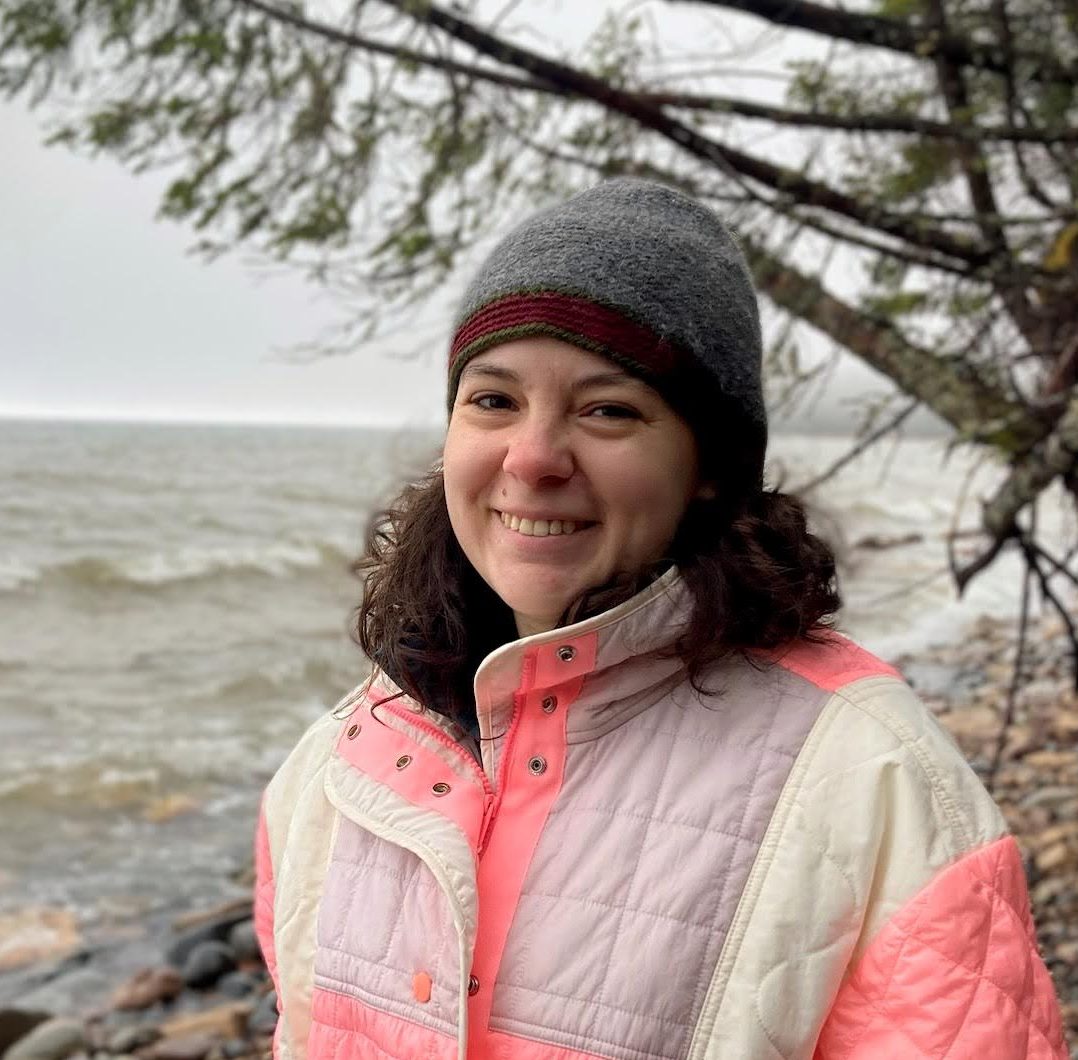
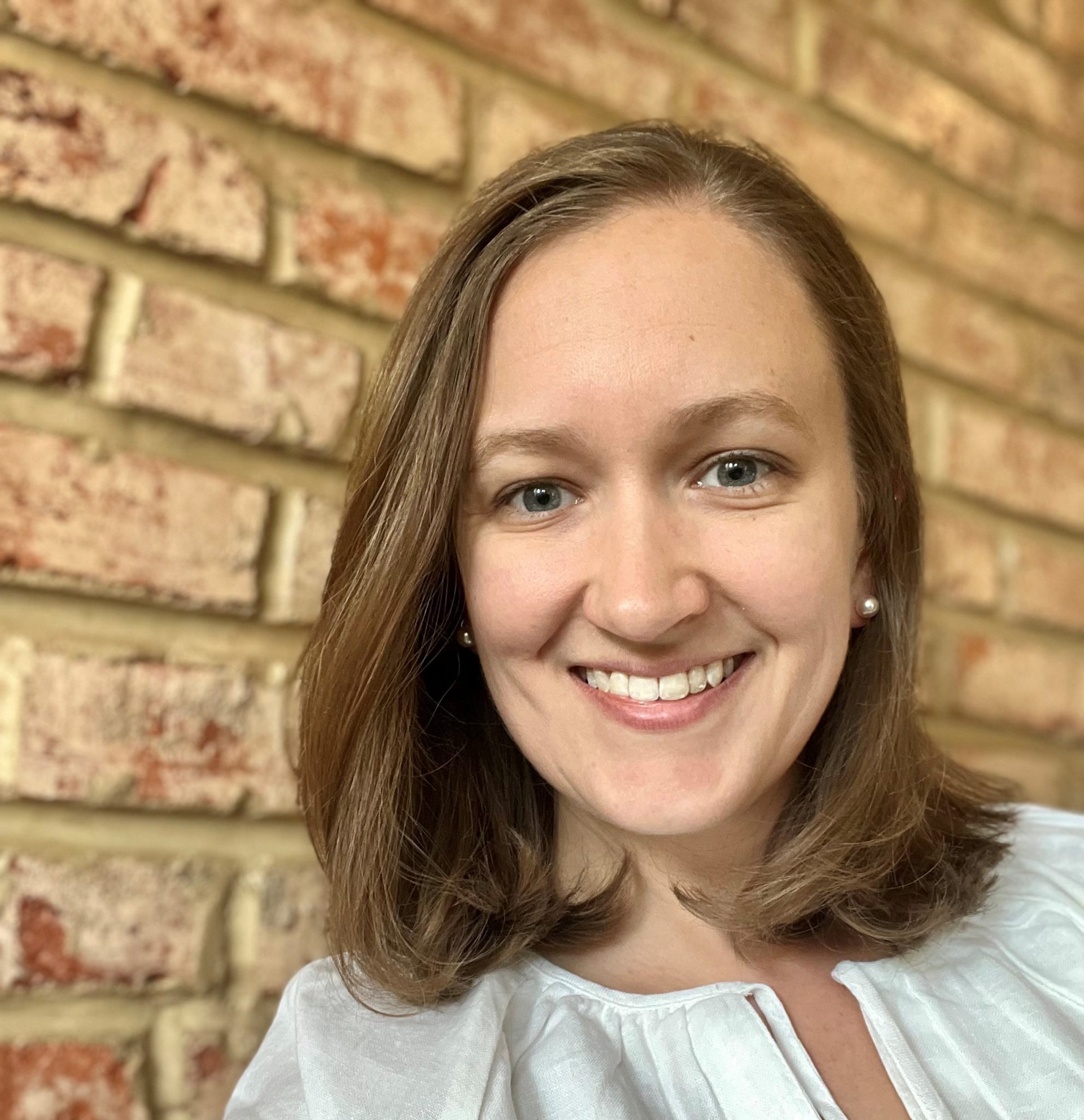




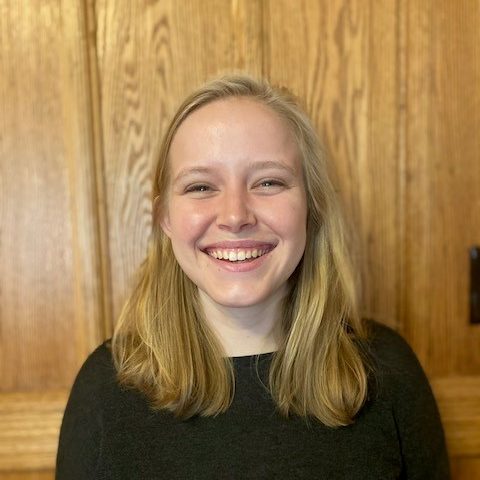

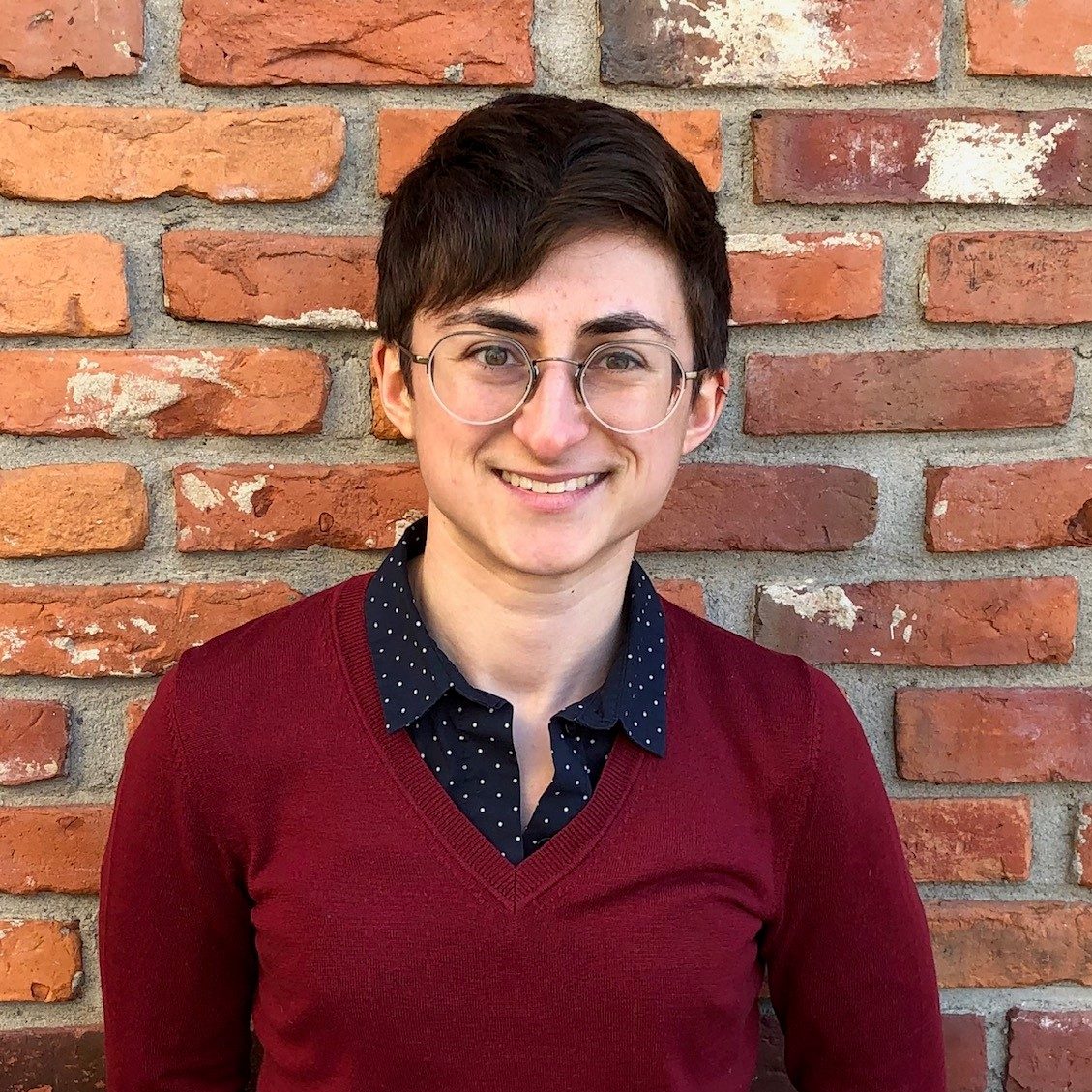
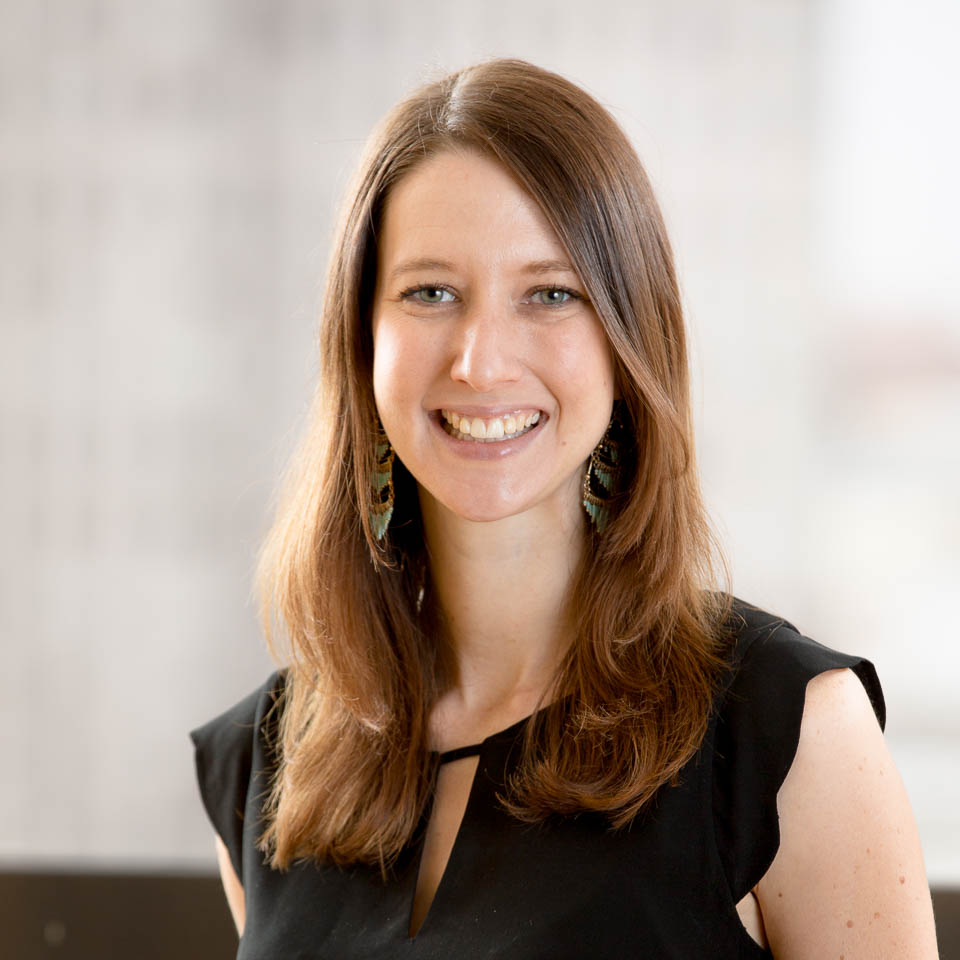


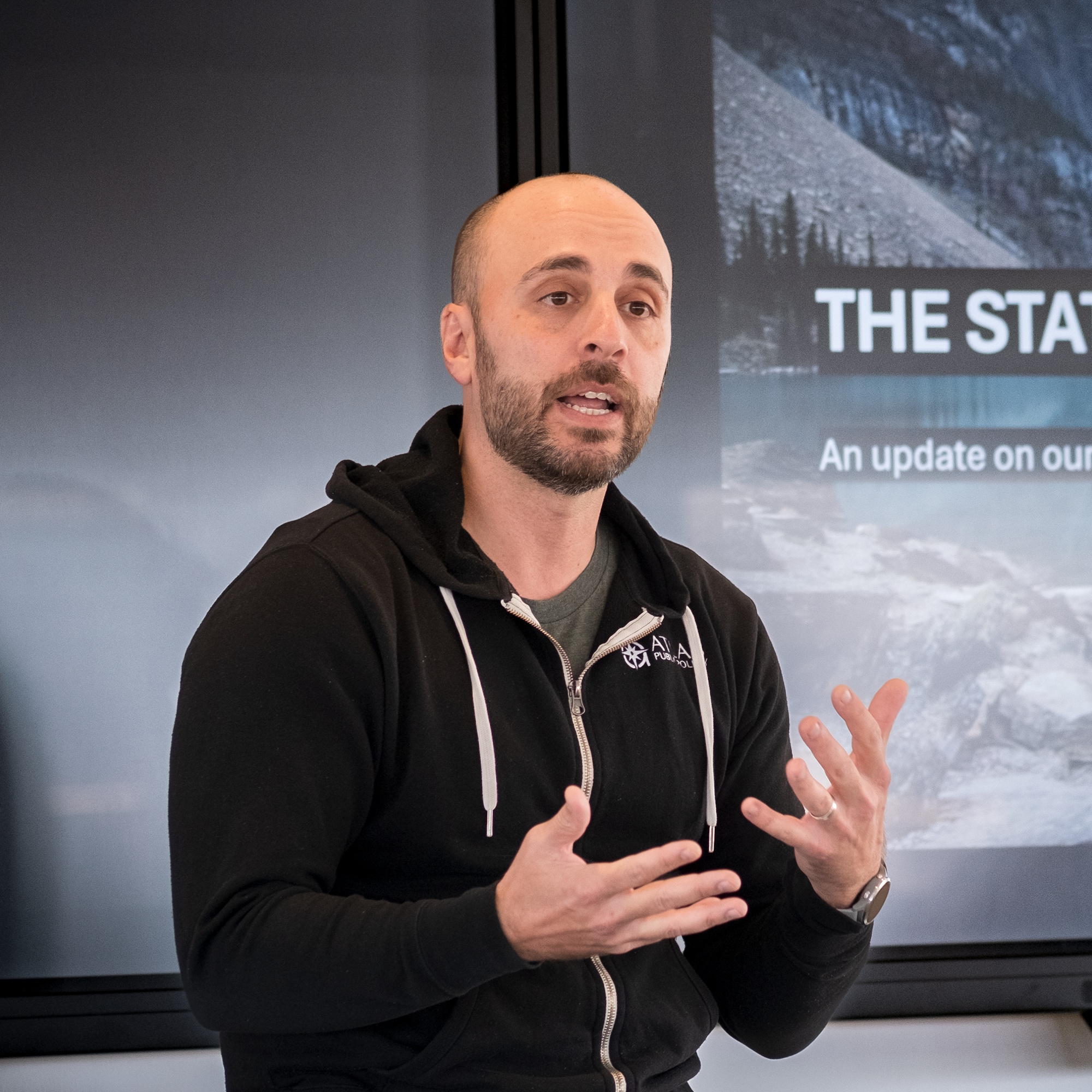







Serena is a Data Associate at Atlas Public Policy and works on data projects and assists in building datasets, designing dashboards, and collecting and managing data.
Serena recently graduated with a Masters in Data Analytics from the George Washington University where she focused on analyzing social media data and building tools to detect implicit hate speech on social media.
Before joining Atlas, she was a Product Marketing Intern at Kerecis, where she worked on managing and analyzing leads and supporting the sales field in downstream marketing. She has a B. Tech in Mechatronics Engineering from Manipal University Jaipur.